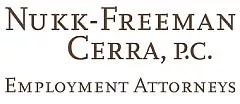On September 26, 2024, the New Jersey Legislature passed S2310, adding the state to the growing list of jurisdictions requiring pay transparency by employers. If signed by Governor Murphy as expected, the bill would require most New Jersey employers to disclose compensation and benefits information in job postings and advertisements and, additionally, provide notice of promotional opportunities to affected employees. Requirements would take effect six months after enactment; accordingly, employers should begin preparing now to comply with potential changes.
Here's what you need to know:
Which employers are covered?
S2310 applies to employers with 10 or more employees over 20 calendar weeks that:
- Conduct business in New Jersey;
- Employ persons in New Jersey; or
- Take applications for employment in New Jersey.
Notably, the legislation does not contain language requiring that the employees be located in New Jersey to be counted. Coverage also extends to job placement and referral agencies, and other employment agencies.
What information must be disclosed in postings?
For each internally or externally advertised posting for new jobs or transfer opportunities, S2310 requires employers to disclose (1) the hourly wage or salary, or a range of the hourly wage or salary, and (2) a general description of benefits and other compensation programs for which the employee would be eligible. Notably, the bill does not prohibit an employer from deviating from the posted wages, benefits, and compensation when making an offer to a particular applicant.
S2310 also requires temporary help service firms or consulting firms to provide pay and benefits information to applicants for temporary employment upon interview or hire for a specific job opening. However, disclosure is not required where the job posting seeks to identify applicants generally for potential future job openings.
When must employers provide notice of promotion opportunities?
Prior to making a promotion decision, S2310 requires employers to make "reasonable efforts to announce, post, or otherwise make known" internally or externally advertised promotion opportunities to all current employees in the affected department.
Employers would not be subject to this notice requirement if the promotion is awarded on the basis of years of experience or performance without advertisement. The bill also does not prohibit employers from making a promotion on an emergent basis due to an unforeseen event.
What are the penalties for non-compliance?
Under S2310, employers face civil penalties for non-compliance of up to $300 for the first violation and $600 for each subsequent violation. Each violation is considered a "separate violation"; however, the bill specifies that the failure to comply with notice obligations for one promotional opportunity, or disclosure requirements for a particular job or transfer opportunity, will be considered one violation even if listed or posted on multiple forums.
How does S2310 differ from existing obligations in New Jersey and New York?
Although pay transparency requirements may be new to many New Jersey employers, employers with five or more employees (including independent contractors) in Jersey City already are required to comply with similar pay transparency obligations under Ordinance 22-045. The Ordinance requires Jersey City employers to include the minimum and maximum salary or hourly wage in all postings for job opportunities, transfers, or promotions. Covered employers must continue to comply with the local requirements.
Employers with four or more employees also may be subject to existing pay transparency obligations under the New York State Pay Transparency Law ("NYPTL"), discussed HERE. Effective as of September 17, 2023, the law requires employers to disclose the minimum and maximum salary, hourly wage, or range of pay in all advertisements for jobs, promotions, or transfer opportunities that will be physically performed, at least in part, in New York, and for out-of-state or remote opportunities that will report to a supervisor or office in the state.
Although similar is many aspects, a few key differences distinguish the pending New Jersey requirements from the NYPTL, including the following:
- Under the New Jersey bill, employers must provide notice of promotion opportunities to impacted employees.
- The NYPTL only applies to temporary helpfirms if a posting is for an opportunity to work directly for the firm.
- The NYPTL requires employers to include a job description in all postings for jobs, promotions, or transfer opportunities, except where the title conveys the job duties.
What should employers do now?
The countdown to compliance may begin sooner than you think (or hoped for) – Governor Murphy is expected to sign S2310 later this month. Accordingly, employers should prepare for compliance by:
- Conducting pay equity audits to ensure pay practices are compliant with state and federal pay equity laws;
- Identifying pay ranges for open positions to meet any future disclosure requirements;
- Ensuring recruiting departments and third-party recruiters are aware of and prepared to comply with the new requirements; and
- Continuing to comply with obligations under existing wage transparency laws, as applicable.
The content of this article is intended to provide a general guide to the subject matter. Specialist advice should be sought about your specific circumstances.



